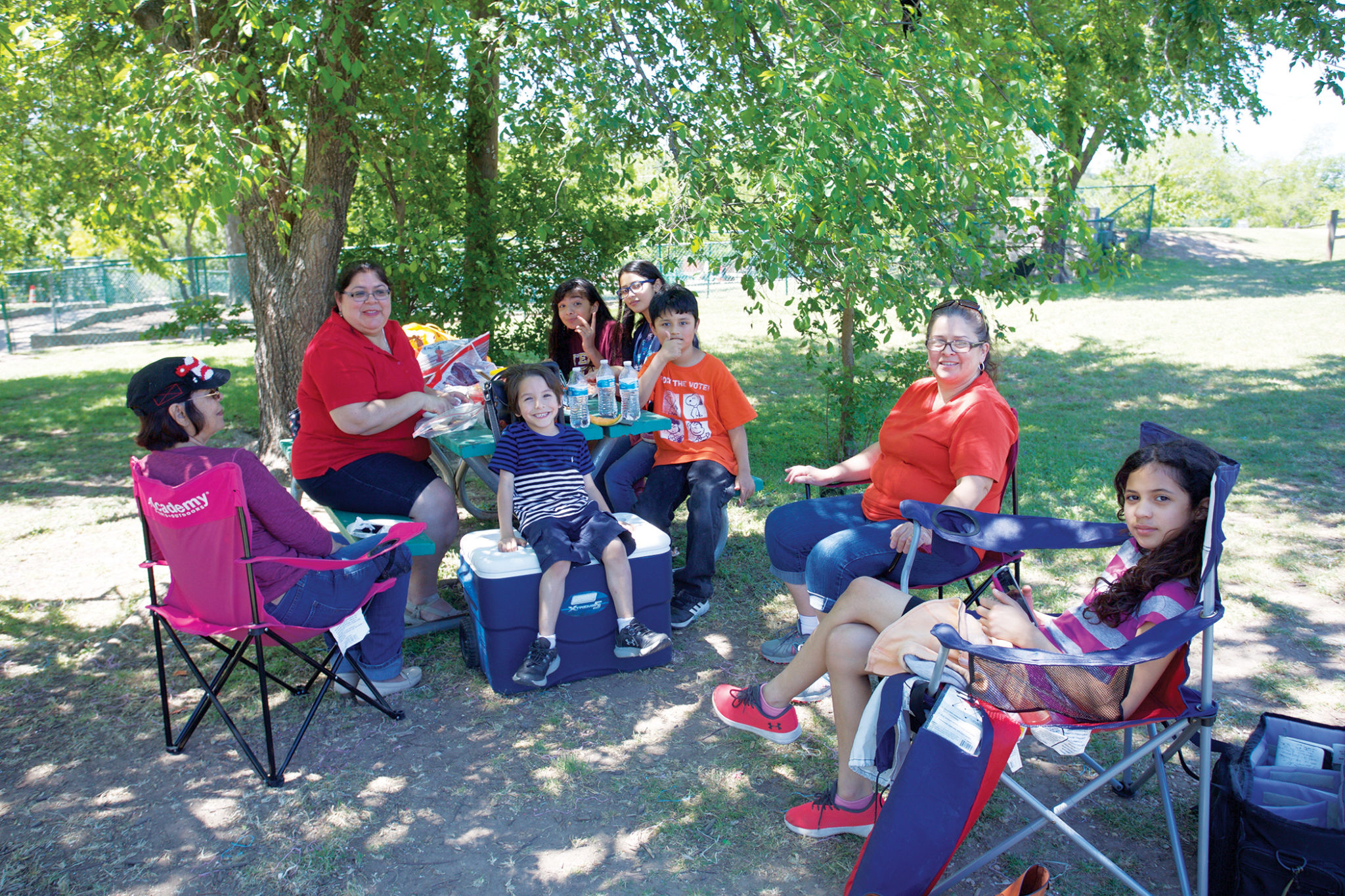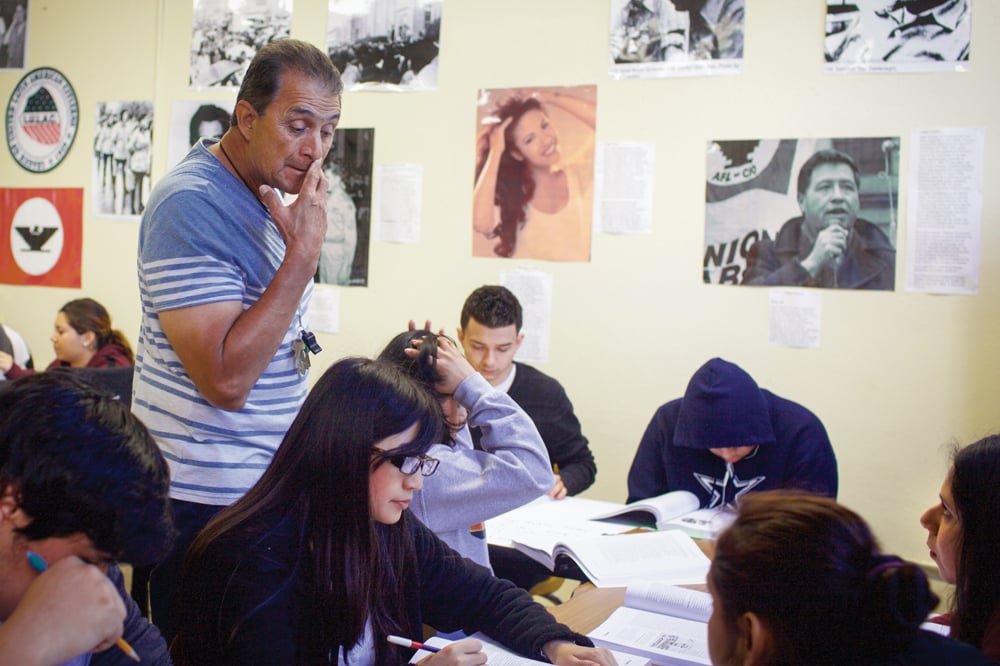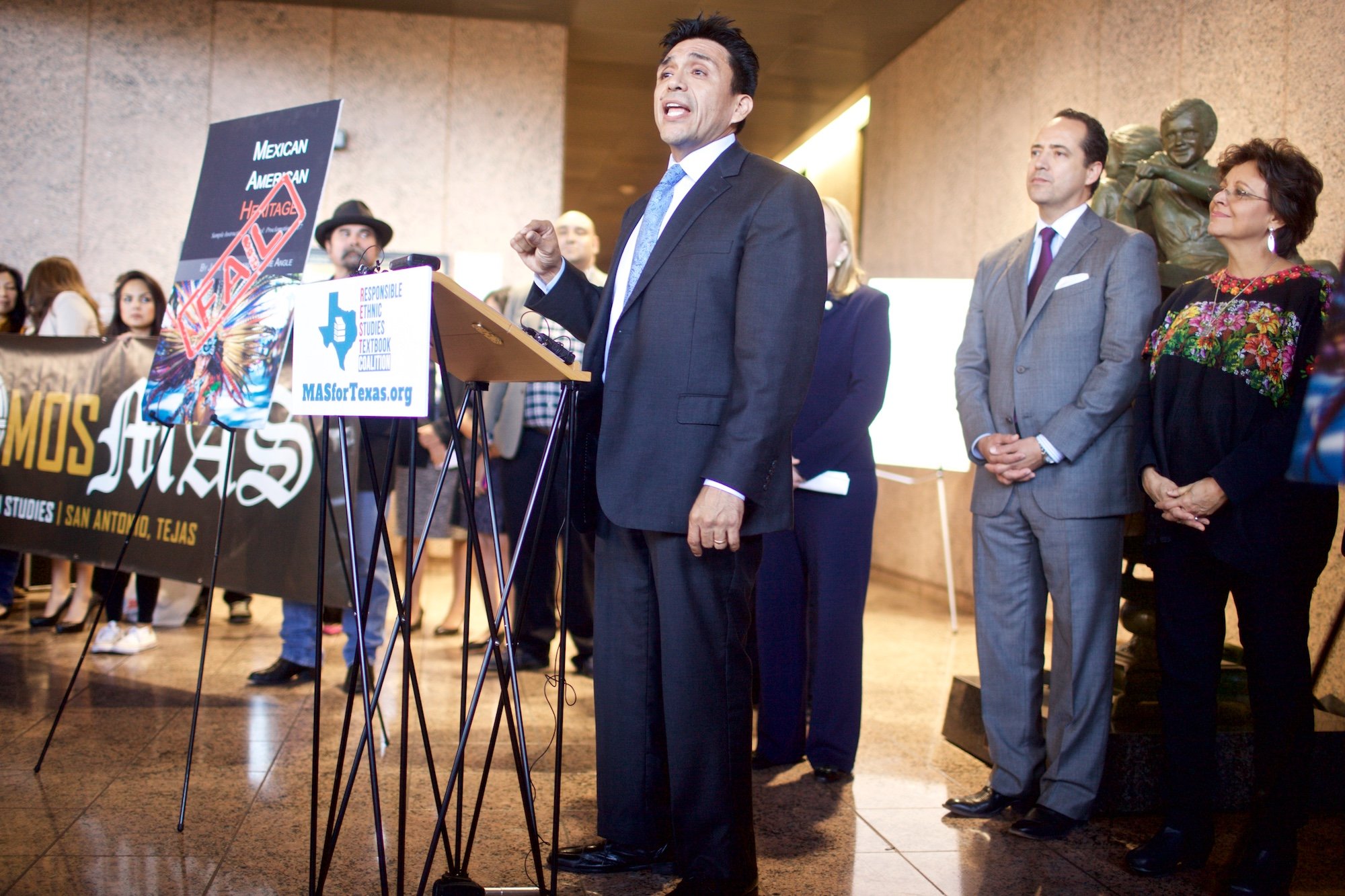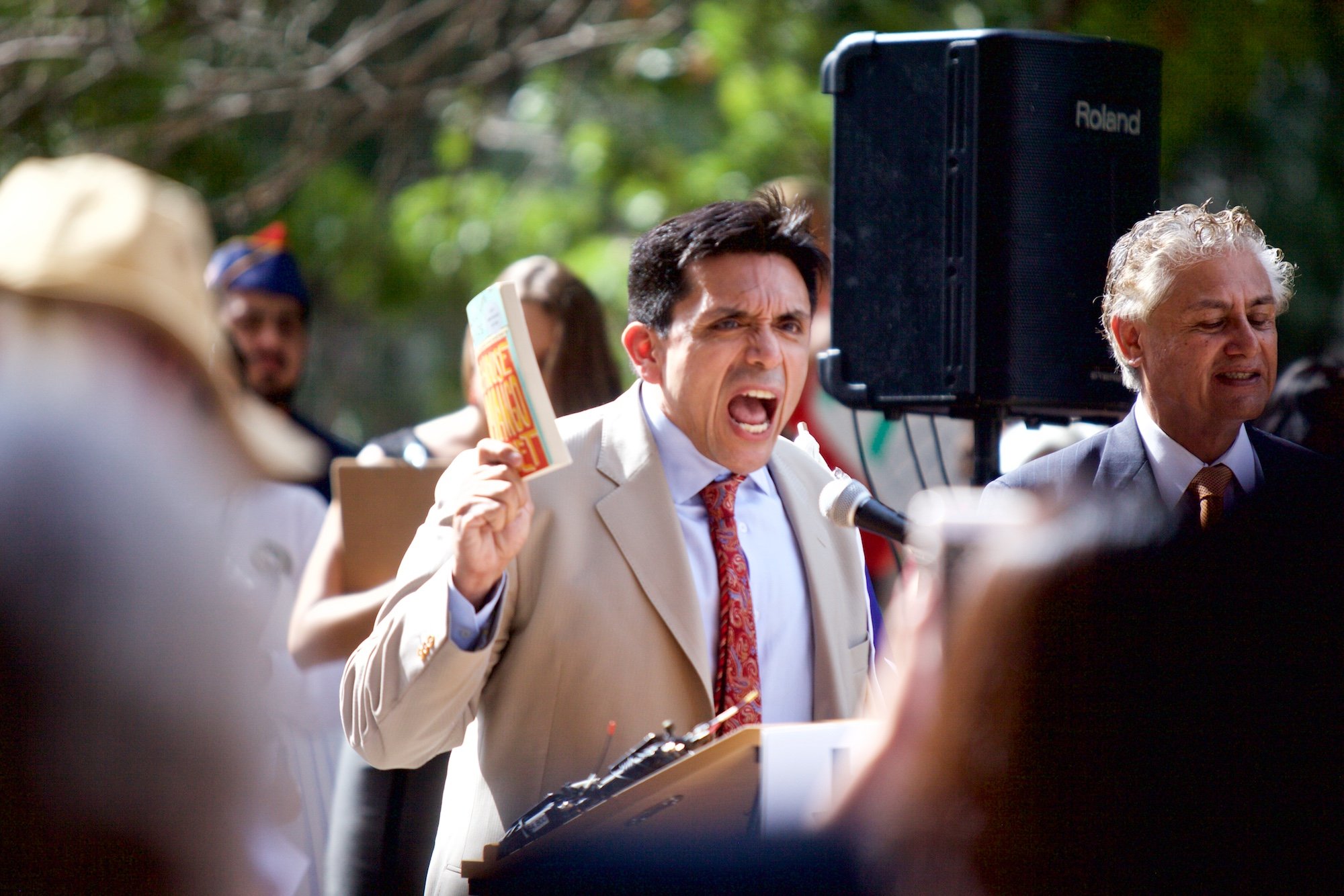
What’s in a Name? Texas SBOE Tentatively Approves ‘Ethnic Studies: Mexican American Studies’
Ultimately, the name change was a compromise in a long, hard-fought battle over whitewashed history.
Above: Houston activist and author Tony Diaz speaks at a rally against the textbook "Mexican American Heritage" in 2016.
After months of back-and-forth over a hyphen, ethnic labels and what it means to be American, the State Board of Education on Wednesday voted on a name for the recently approved K-12 Mexican-American studies elective course: “Ethnic Studies: Mexican American Studies.”
The unanimous, tentative approval of the “language” of the course, including its new name, was relatively well-received by the dozens of Mexican-American students, advocates and educators who attended the SBOE hearing. Ultimately, though, the name change was a compromise in a long, hard-fought battle over whitewashed history.
In April, after years of pressure from Hispanic activists and educators, the SBOE approved a standardized K-12 Mexican-American studies elective course — the first “ethnic studies” elective course to be approved in Texas. But advocates were upset by a last-minute change to the course name.
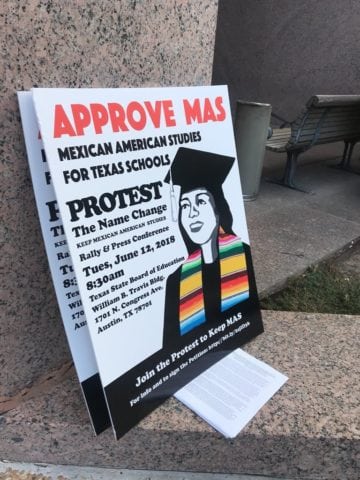
Led by board member David Bradley, R-Beaumont, the SBOE voted in April to change the course from its initial “Mexican American Studies” name to “Ethnic Studies: An Overview of Americans of Mexican Descent.” Bradley took issue with the course’s original moniker, which was preferred by activists, because he “find[s] hyphenated Americanism to be divisive.”
On Tuesday, the group protested against the controversial name change for the course, testifying in front of the board.
“I feel like Mexican-American studies is making me more aware and not me embarrassed of who I am,” said Modesta Bocanegra from San Antonio, who is taking a course offered at KIPP Camino Academy. Another student, Karen Acuña of San Antonio, said she’s more “accepting” of herself after taking the course.
“Research has shown that when people feel connected to what they are learning, to their history, it’s going to increase their self-advocacy, their confidence and ultimately their academic achievement,” said Victor Moreno, an Army veteran and doctoral student at the University of Texas at San Antonio.
To the disappointment of the protesters, Bradley failed to attend Tuesday’s hearing and testimony, but was present Wednesday and voted for the new name.
Although the new name is not simply “Mexican American Studies,” the first choice of Democratic board members Ruben Cortez Jr., of Brownsville, and Marisa B. Perez-Diaz, of Converse, Perez-Diaz said she feels much more comfortable with the compromise.
“The start of the course name is unnecessary, but I don’t anticipate there’s going to be any kind of major uprising or anything because, at the end of the day, Mexican-American studies is the field of study we wanted to acknowledge, Mexican American is the identity we wanted to make sure we were being respectful of and I think the title accomplishes that,” said Perez-Diaz.
